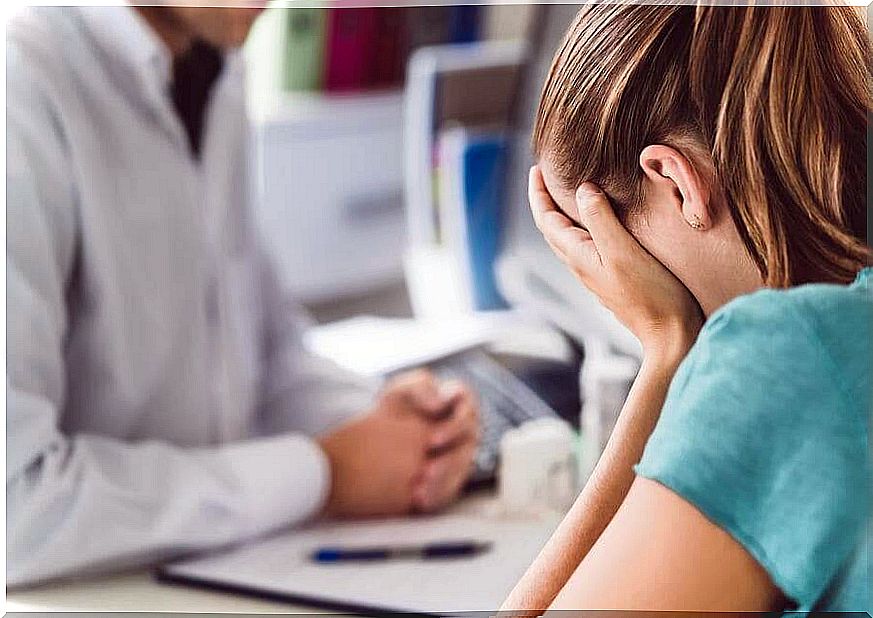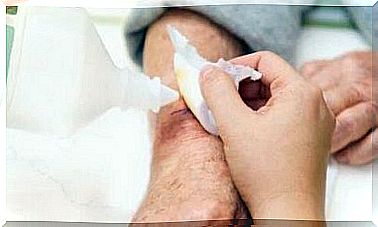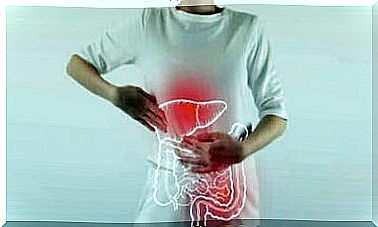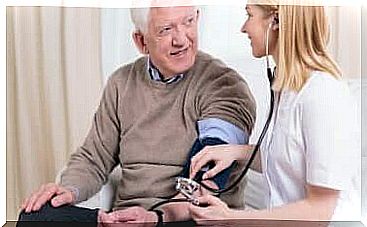5 Helpful Ways To Deal With Depression
Uncontrolled depression can significantly affect quality of life. It is therefore useful to know certain habits and strategies that can better manage your symptoms.

There are a wide variety of treatments available for managing depression. However, the therapy chosen may vary depending on the severity of the disorder and any underlying issues. What can you do to make it easier to control?
Today, your symptoms can be treated with a combination of medication, psychological therapy, and lifestyle changes. In addition, there are complementary therapies that have positive effects.
What is depression?
Depression is classified as a mood disorder, the main characteristics of which are a prolonged feeling of sadness, accompanied by loss of appetite and loss of hope, among others.
According to the American Association for Anxiety and Depression, this mental illness affects approximately 15 million Americans each year. Most disturbing is that many underestimate her and do not seek the help they need. Therefore, some cases have a fatal outcome.
The disease can develop differently in each person. However, in general, it tends to interfere with work and social relationships. It even affects concentration problems, sleep disorders and certain chronic pathologies.
How to deal with depression: some strategies that help
One of the keys to managing depression is getting a diagnosis. The earlier it is detected, the greater the chances of successful treatment. After receiving the appropriate tests and confirming depression, the following strategies can be applied to manage it:
1. Get regular physical exercise

One of the best habits for promoting mental health is physical exercise. In fact, data from the Mayo Clinic suggests that these activities can significantly contribute to the treatment and prevention of depression.
Indeed, its practice promotes the release of endorphins, chemicals associated with well-being. It also has a calming effect and minimizes the presence of chemicals in the immune system that adversely affect depression.
Some activities are recommended:
- Yoga or Tai Chi
- Pilates exercises
- Gym routines
- Kick boxing
- Bike rides
- Swimming
2. Dealing with Depression: Building Strong Relationships
Patients with this disorder need constant support. So, part of the depression management plan is to build strong interpersonal relationships. Quality time with a loved one or close friend can help clarify thoughts and reduce sadness.
3. Sleep well

Symptoms of depression can affect the quality of sleep. However, poor sleep can make it difficult to treat this condition. In fact, people who suffer from insomnia are up to ten times more likely to experience depression than those who sleep well.
Therefore, even if it costs a little, it is better to take measures to induce the body to get a good rest. This includes :
- Ensure a good temperature in the room.
- Keep distracting items away, including cell phones, computers, and televisions.
- Meditate before you go to bed.
- Make sure the bed is clean and comfortable.
- Avoid the consumption of alcoholic beverages and sources of caffeine.
4. Manage depression: maintain a healthy diet
There is no strong evidence on the relationship between certain foods and the incidence of depression. However, a lot of research has linked nutrition to the brain processes that help control this disorder.
Therefore, part of your treatment is to improve your eating habits such as:
- Eat a balanced diet, with lean protein, fruits and vegetables, and healthy fats
- Limit the consumption of sugars, saturated fats and processed fats.
- Increase the consumption of omega-3, a fatty acid found in foods such as oily fish, nuts and some seeds.
- Drink plenty of water and healthy fluids. Even some infusions of herbs and spices can help.
5. Use therapeutic massages
Among the many alternative therapies for dealing with depression, we find one quite popular: therapeutic massage.
While this is not a method of curing this mental problem properly, it can help relieve many of the associated physical symptoms.
The application of therapeutic massage helps fight against stiffness, muscle pain and fatigue. In many patients, it even has advantages in terms of quality of sleep. For best effects, the therapist may use certain essential oils that have antidepressant properties.
Do you or someone you love suffer from depression? Do not hesitate to take into account the advice given. Of course, given the complexity of this disorder, be sure to seek professional help to manage it.









